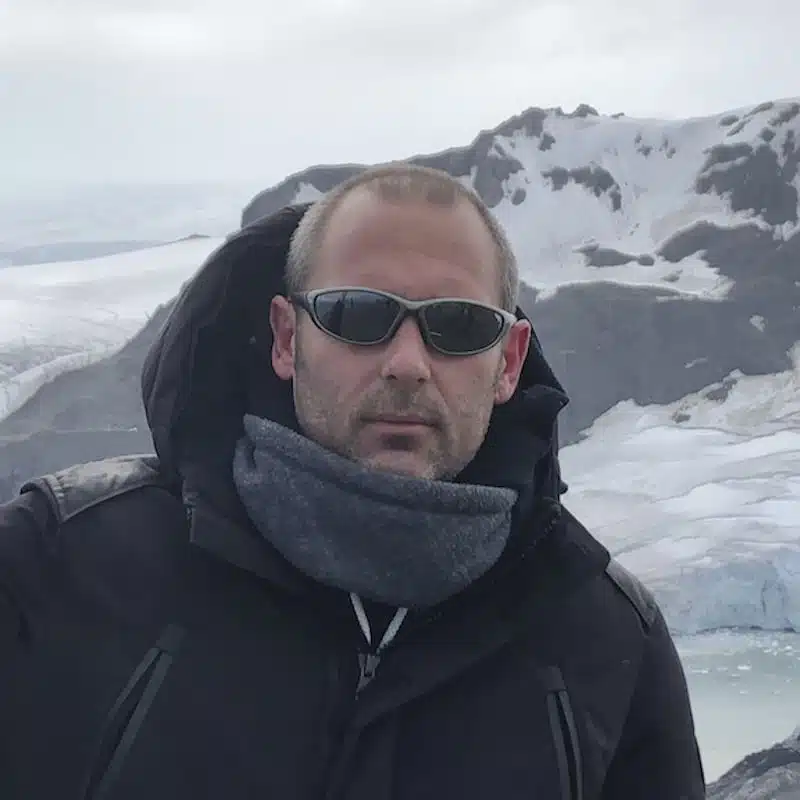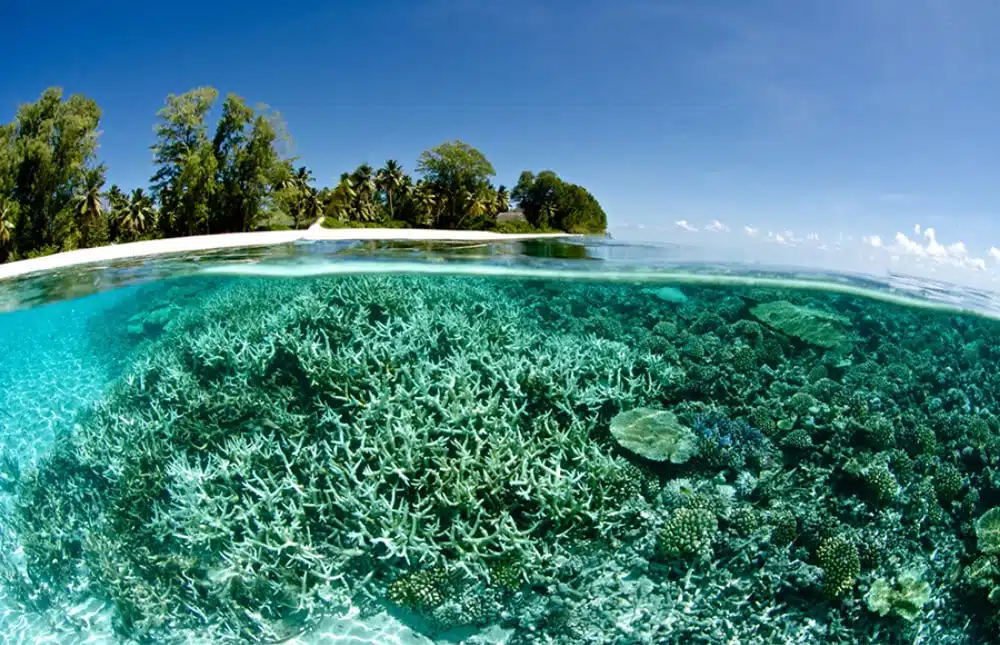Exploring the Southern Ocean to better understand climate change
Johan Etourneau is a professor and researcher at the École Pratique des Hautes Études (EPHE-PSL) who studies the past climate to better predict future climate changes. In January 2022, he and his team set sail aboard Le Commandant Charcot to collect samples from the Southern Ocean. It is the first time PONANT and Johan Etourneau have worked together, but it certainly won’t be the last.
As a scientist, what does the opportunity to set sail aboard Le Commandant Charcot mean to you?
Being able to continuously monitor the evolution of the climate, ecosystems and their environment in a difficult-to-access region – Antarctica – over several months and years is a unique opportunity. Scientific missions are often limited to less than two months. With researchers regularly aboard Le Commandant Charcot, we can repeatedly conduct activities in this area and measure specific physical, chemical and biological parameters that can only be collected on board a ship.
In addition, as France does not currently have an icebreaker, operations in certain regions covered with sea ice are almost impossible, except via international collaboration. Thanks to Le Commandant Charcot, we can now explore new areas that up until now have hardly been studied using new means.
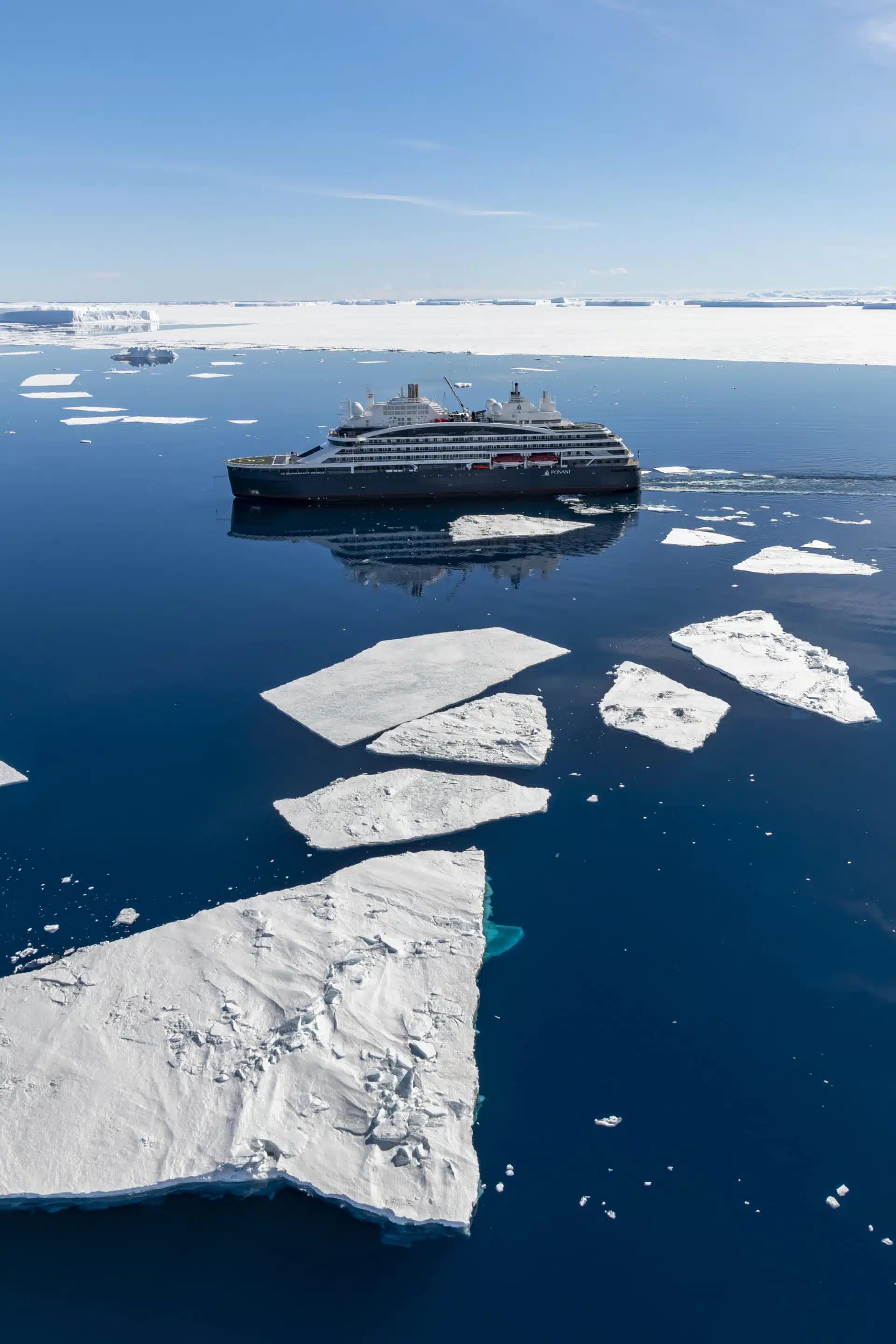
Why is Antarctica a particularly interesting place to study when analysing the past climate?
Currently, we have very little information about the Southern Ocean. However, we know that it plays a crucial role in the evolution of the global climate and ecosystems. Satellite data only covers the last few decades at best. Data recorded by various scientific databases and during oceanographic campaigns only takes us back to the 1950s.
Records of the last few centuries, the last millennia, and even beyond will enable us to better predict how the climate will change in the future and the consequences of these changes.
We need as much data as possible about the Southern Ocean, whether it relates to temperature, salinity or ocean-atmosphere exchanges, including gases such as CO2. We also need to understand the seasonal cycle of marine life down to the microscopic level, which species make it up, and how all these components have become interlinked over time.
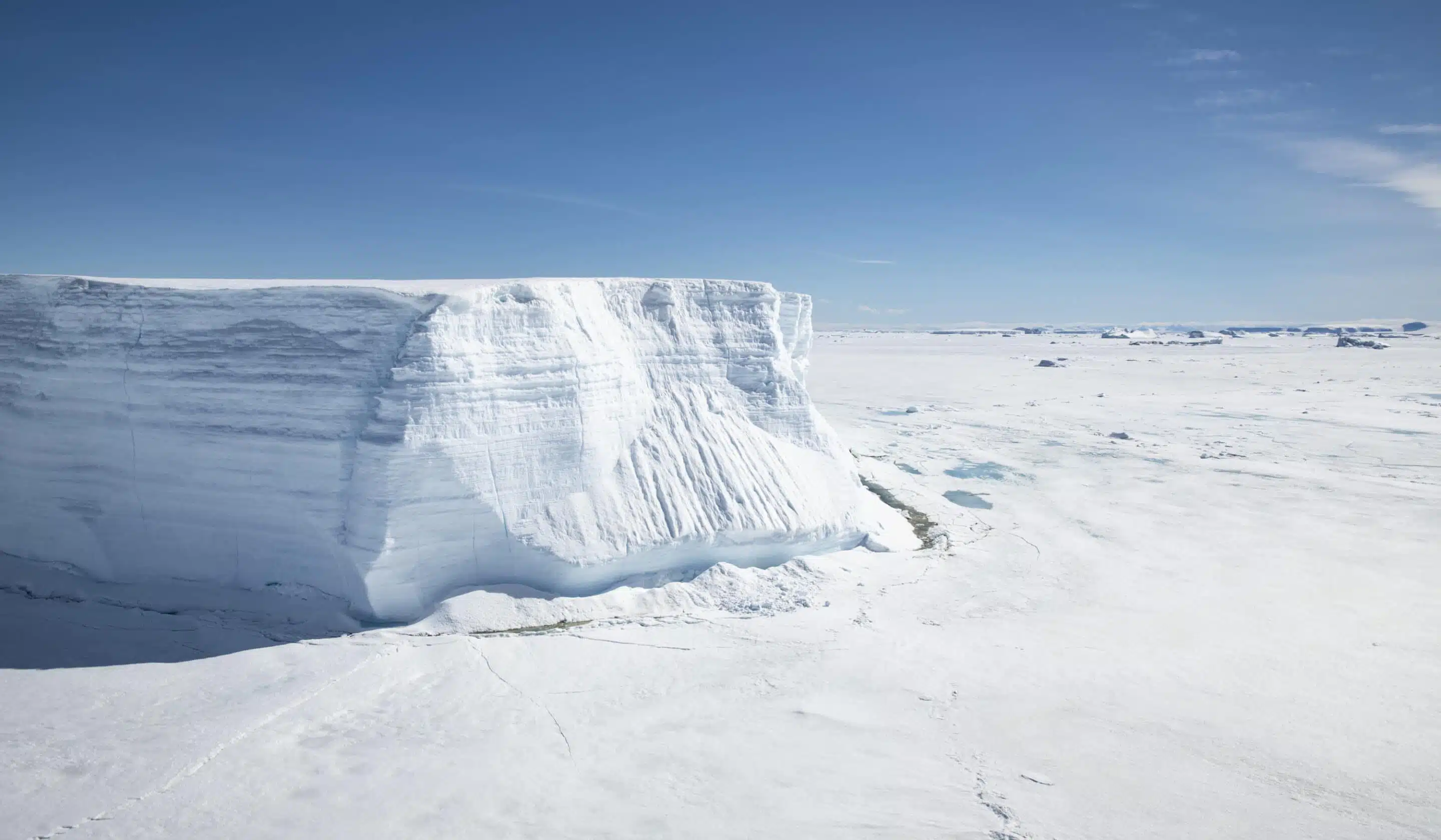
You regularly participate in oceanographic campaigns at sea. Why are samples from the sea particularly important?
Given the rapid climate changes we are currently facing, it is urgent to collect samples from the entire water column, from its surface down to the seabed, to obtain the most accurate inventory possible before the environment changes too much. The collection of marine sedimentary archives will complete the picture as they enable us to reconstruct all these parameters in the past and ultimately relate this to the present.
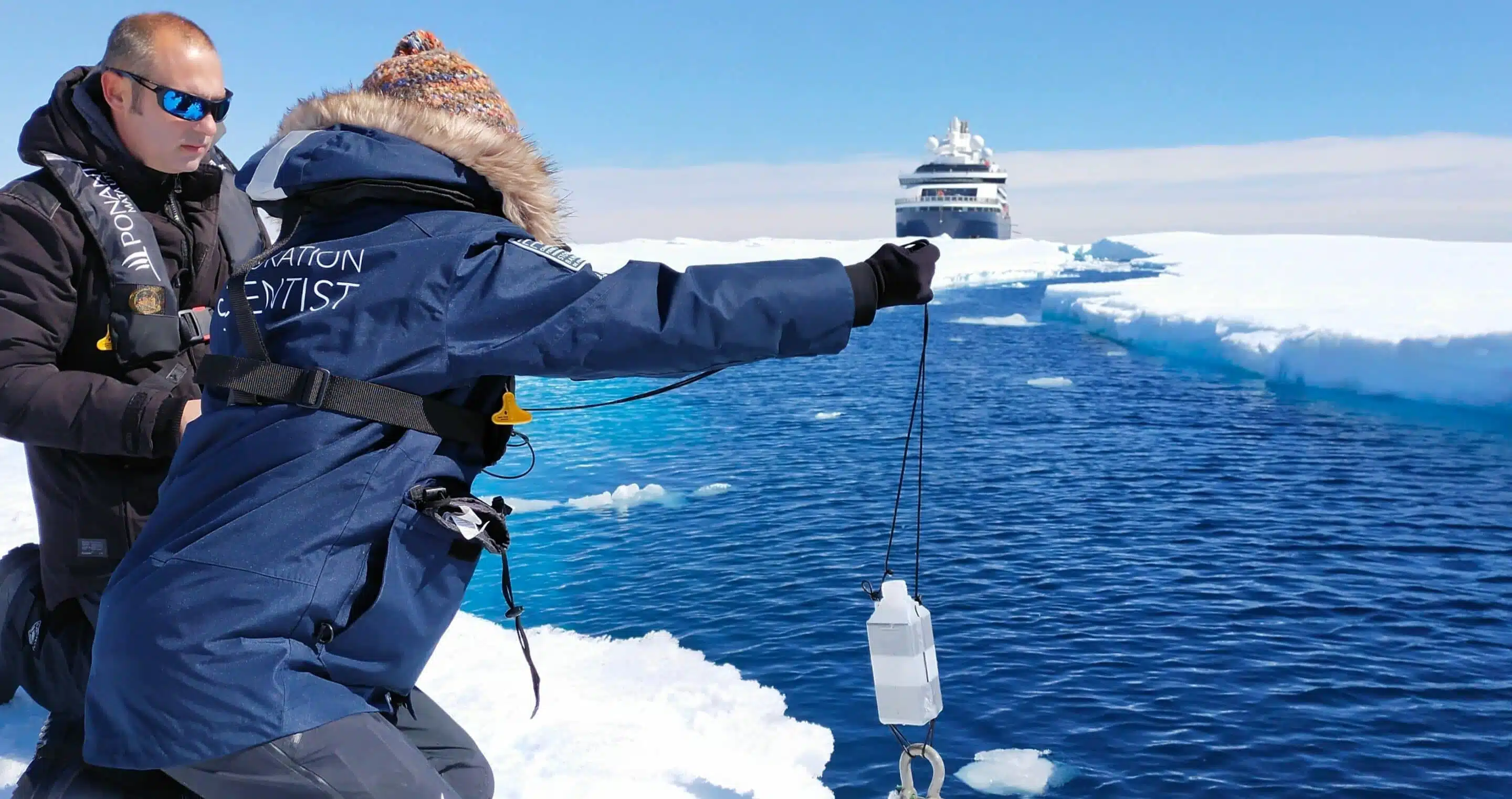
What results have you already obtained through your previous research?
Based on the data and records we acquired, we know that many climate and environmental changes have occurred naturally in Antarctica over the past millennia. The ice cover extent has not always remained the same over time, and the ocean and atmosphere temperatures have varied dramatically by several degrees.
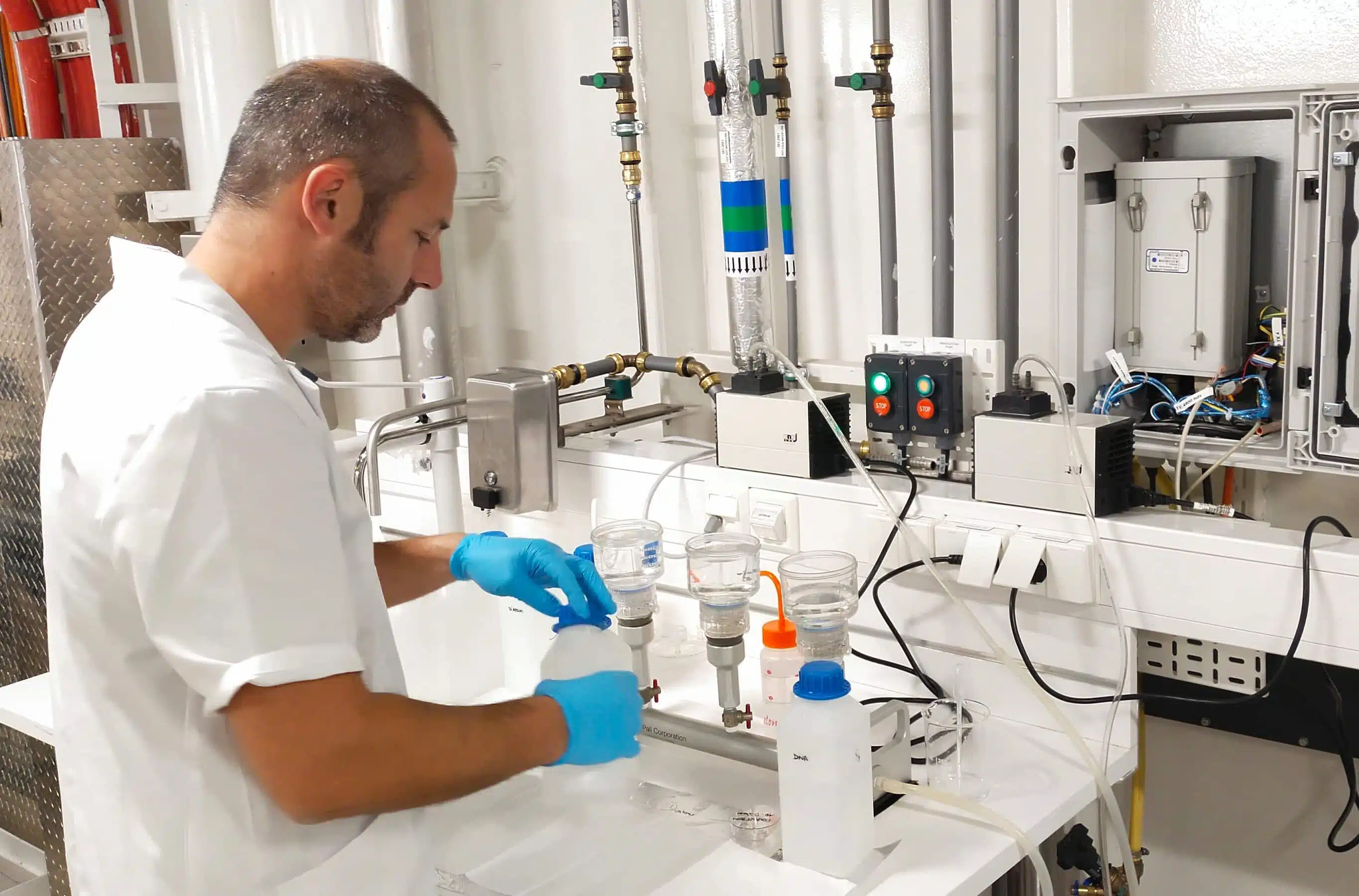
We also know that the ecosystems were probably very sensitive to these variations, even if we do not know exactly how. We have also shown that these changes had a significant impact on the ice shelves that protect Antarctic glaciers, including in the Antarctic Peninsula where ocean warming has been a fundamental factor in the decline of the Larsen Ice Shelf over the last 8,000 years. This series of events is probably the result of various climate forcing phenomena that sometimes originate in remote regions, such as El Niño in the equatorial Pacific Ocean.
In the context of current climate change issues, how can studying the past climate shed light on the future?
If we could establish a clear link between all the components of the climate system in the Southern Ocean, we could improve the results of climate models and thus hone our projections for the future. By measuring the historical effect of 1°C of ocean warming on ice shelves, we can better estimate its future impact on sea level rise, for example.
Understanding how certain phytoplankton communities have adapted to changes in the ice cover in the past could give us a better understanding of how they might react to a substantial decline or advance of sea ice. Using the cascade effect, we could then determine how the habitat of certain iconic Antarctic species, such as penguins, seals and whales, might change.
A vessel equipped for scientific research
The polar exploration vessel Le Commandant Charcot is equipped with two research laboratories. Johan Etourneau’s team was able to carry out seawater sampling using a filtration system and take temperature and salinity measurements thanks to the onboard thermosalinograph. “Le Commandant Charcot offers huge potential for a host of onboard instruments in the future, such as incubators, fluorimeters and sensors, that will make it possible to carry out analyses on the ship,” explains Johan Etourneau.
Photos credits : © Studio PONANT / O. Blaud
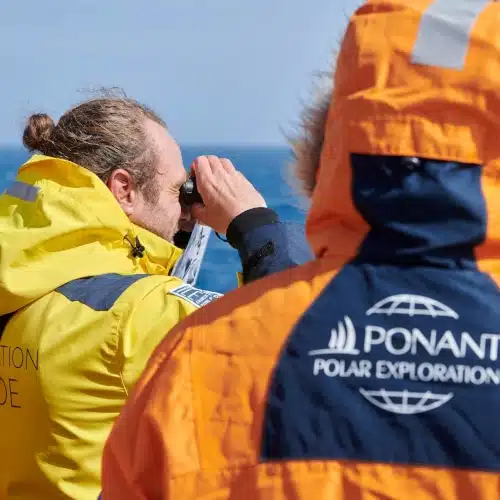
Exploration driven by science
Set sail with PONANT for an expedition cruise that combines discovery with studying the polar world

